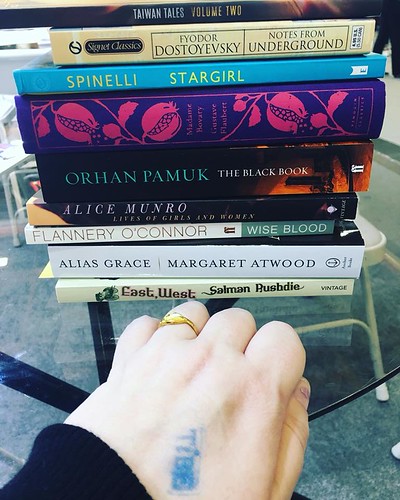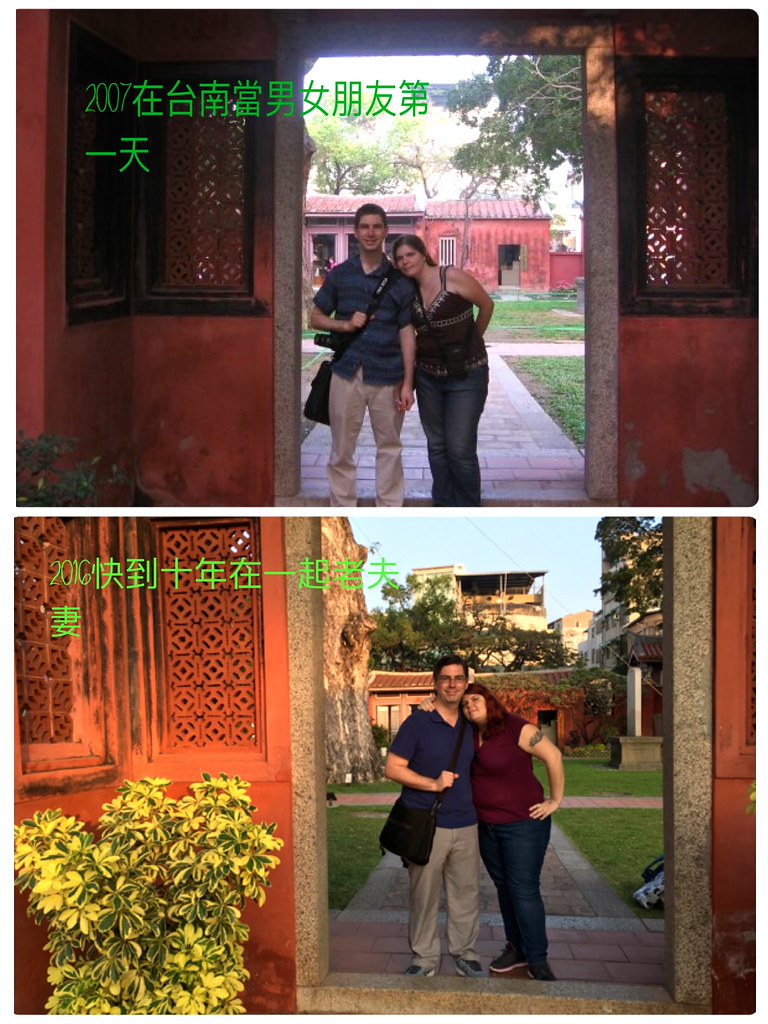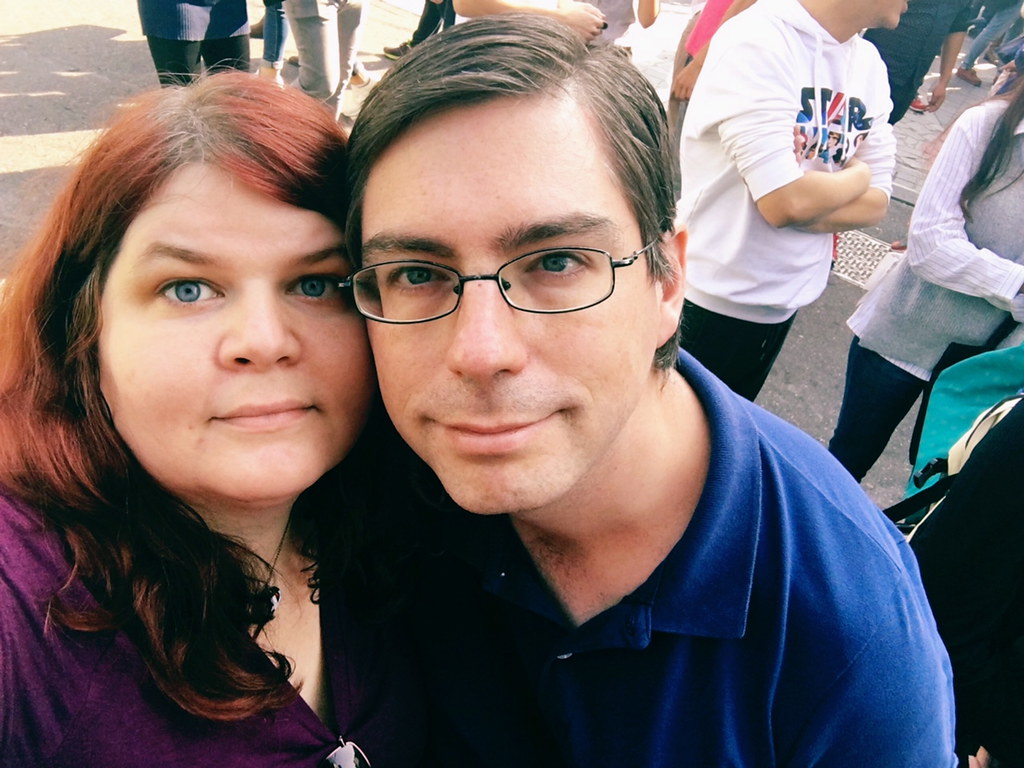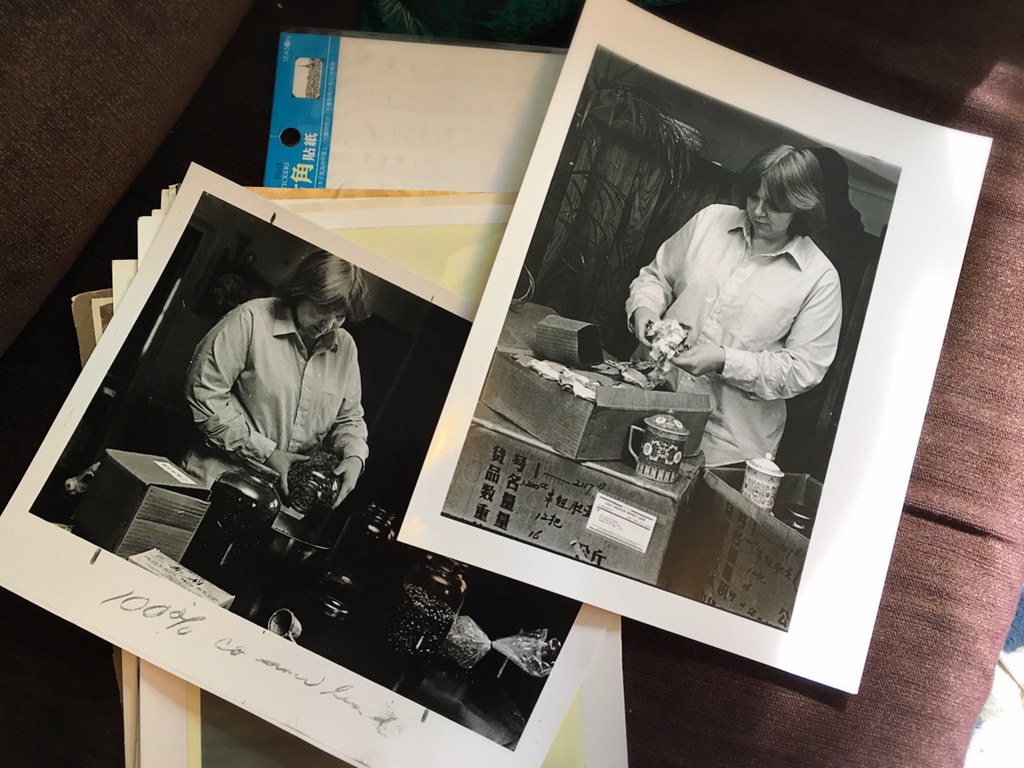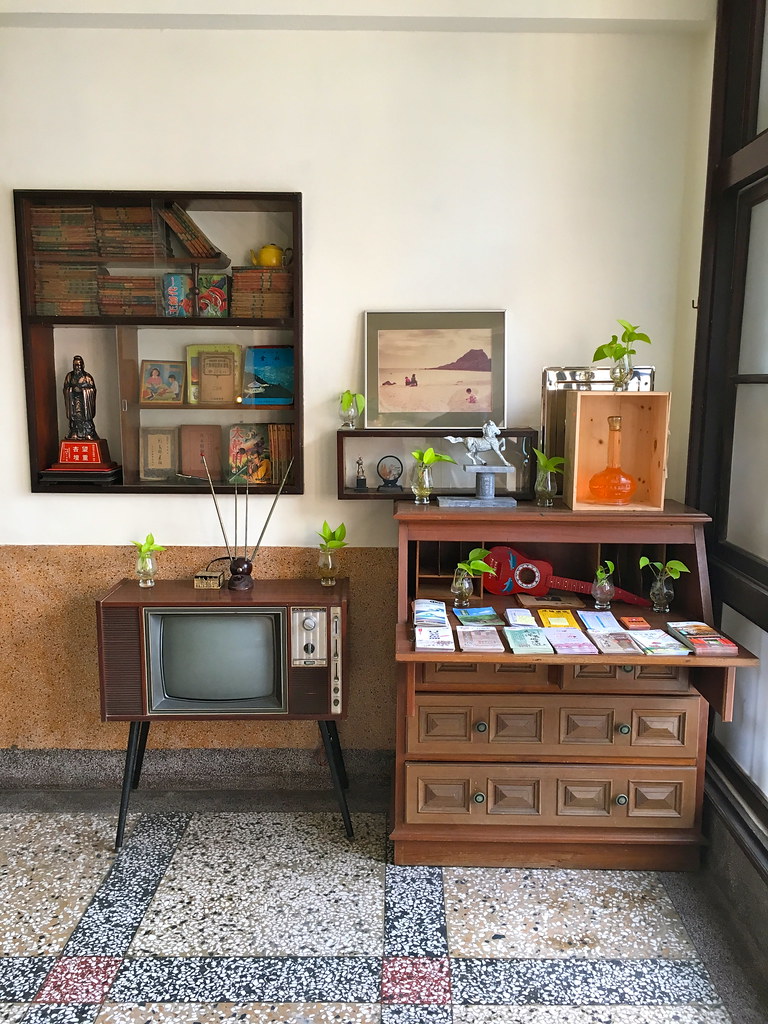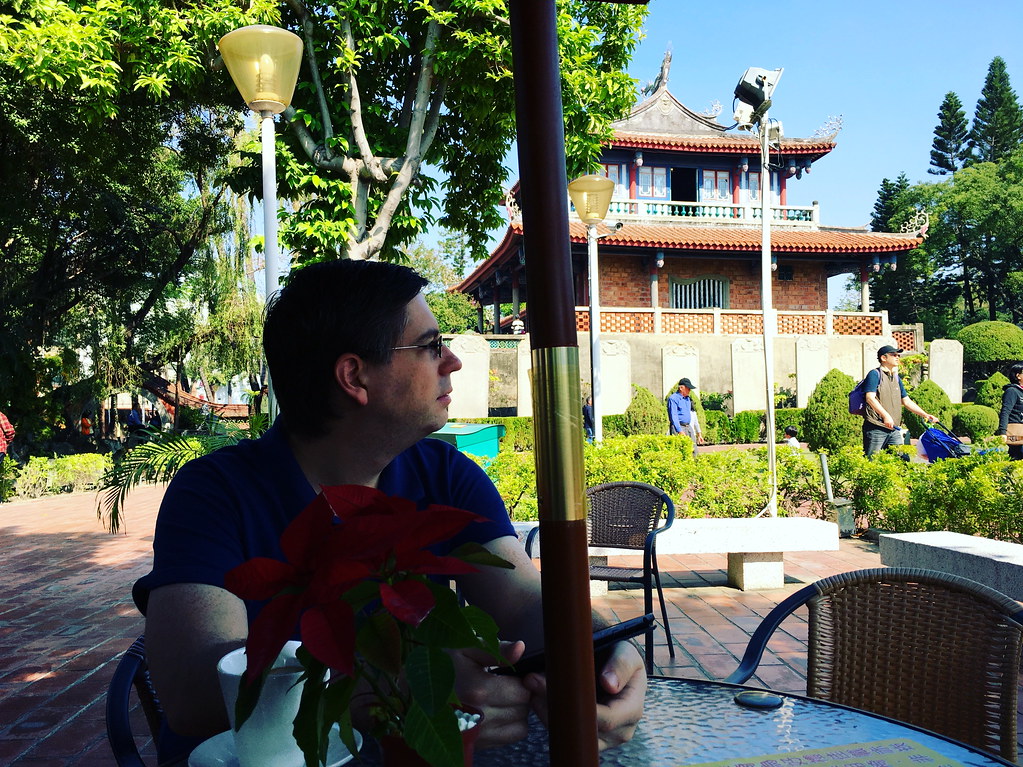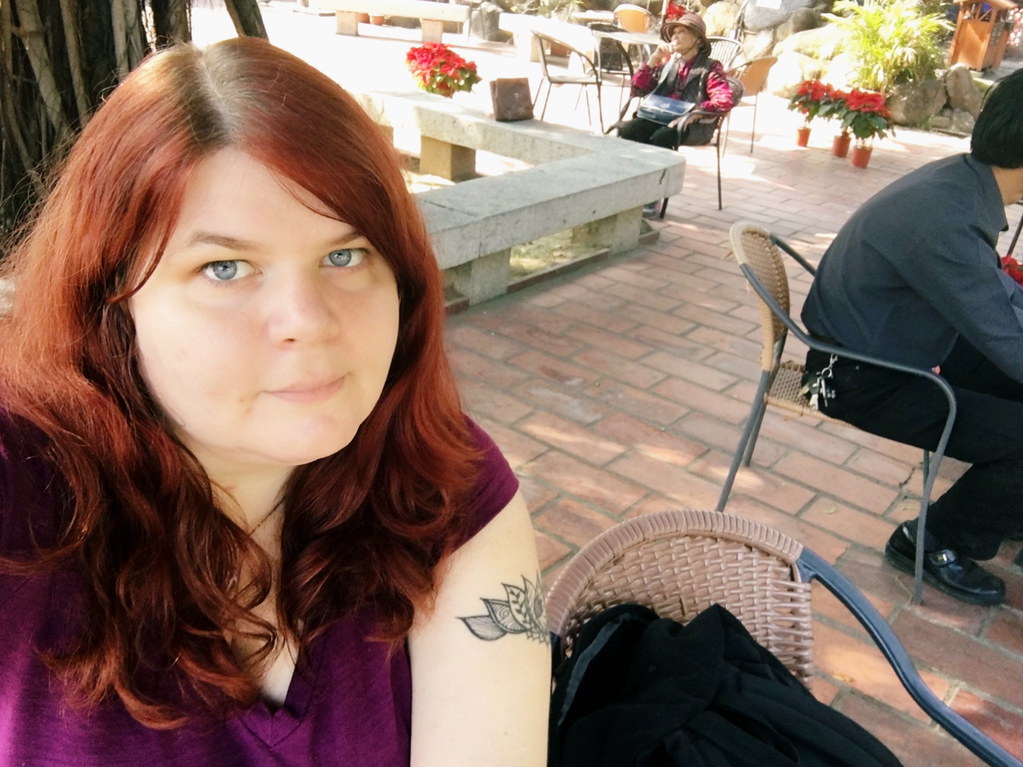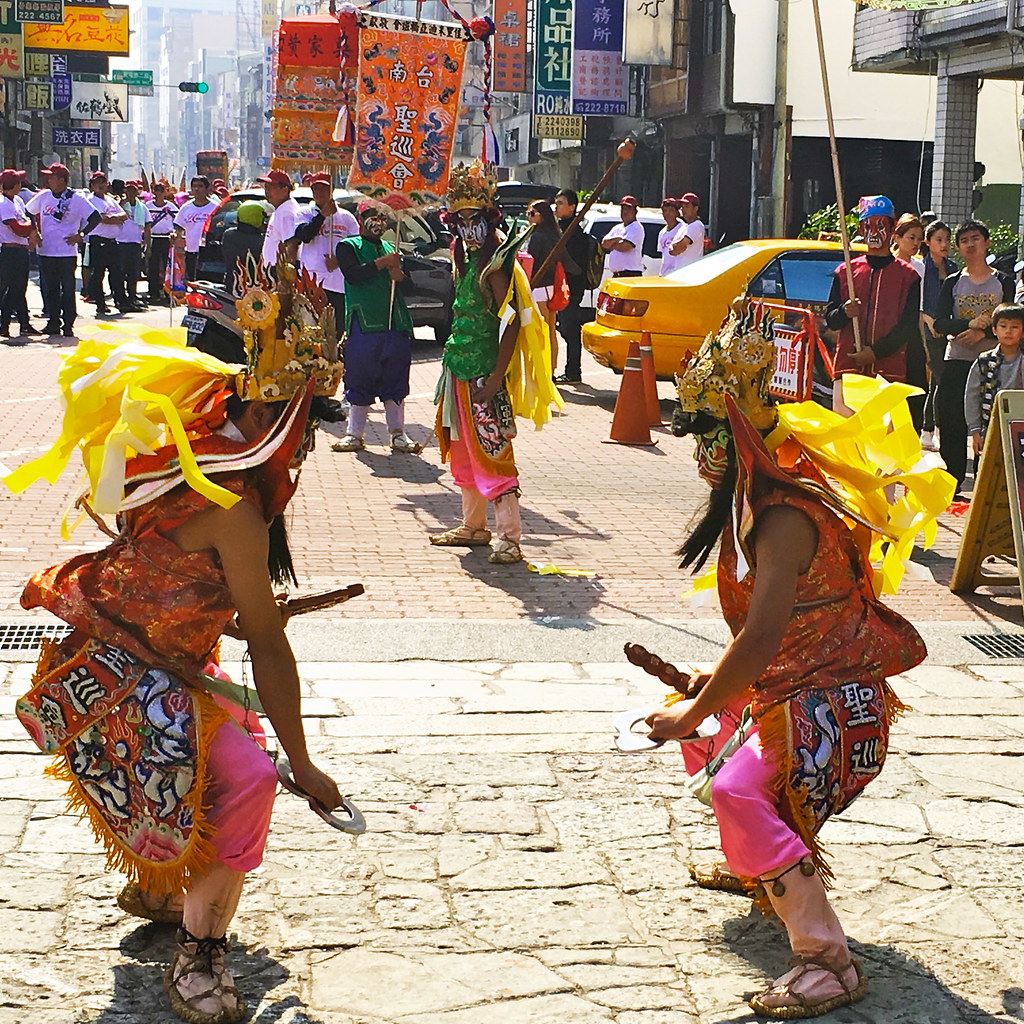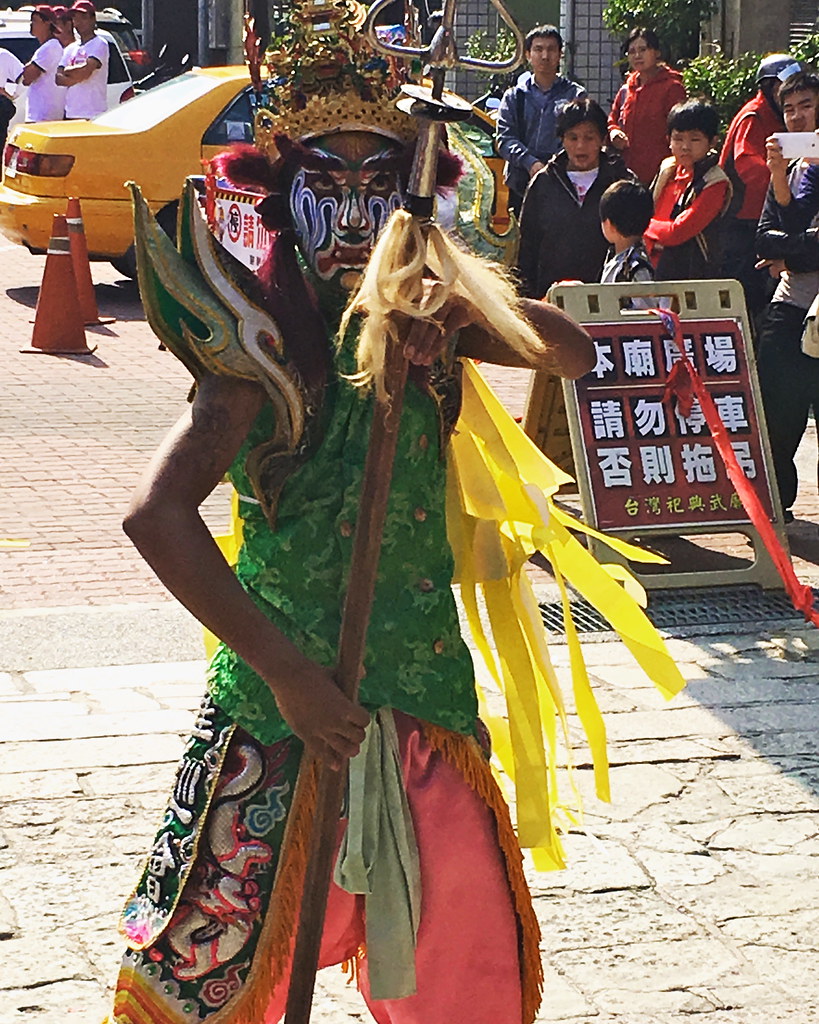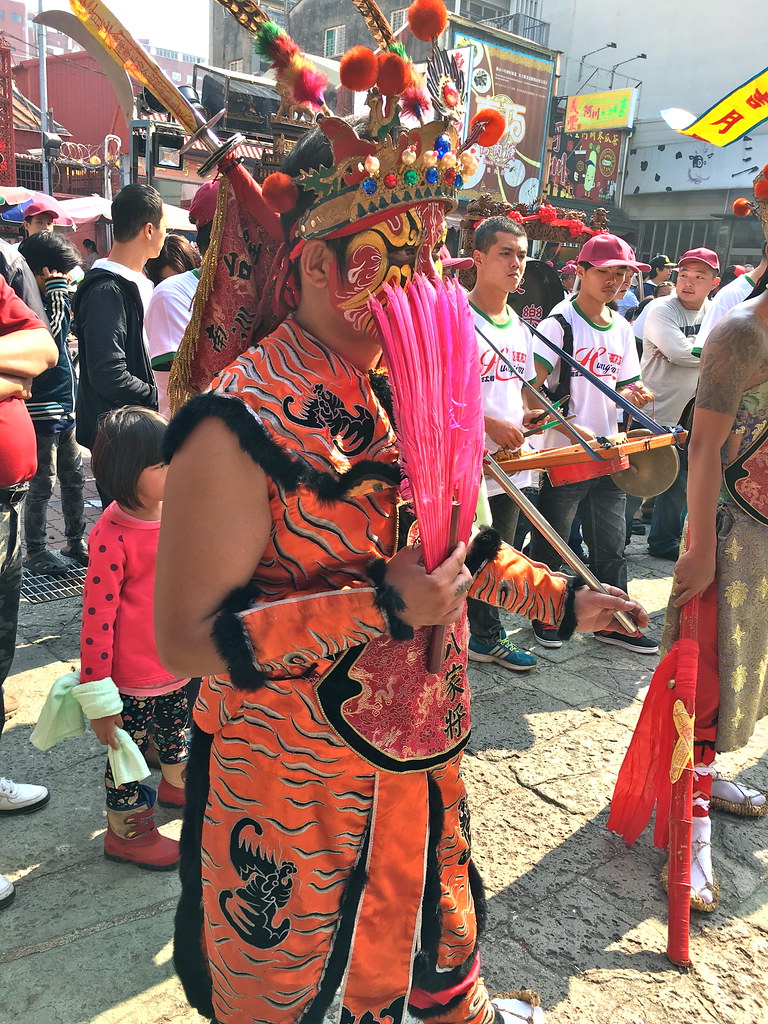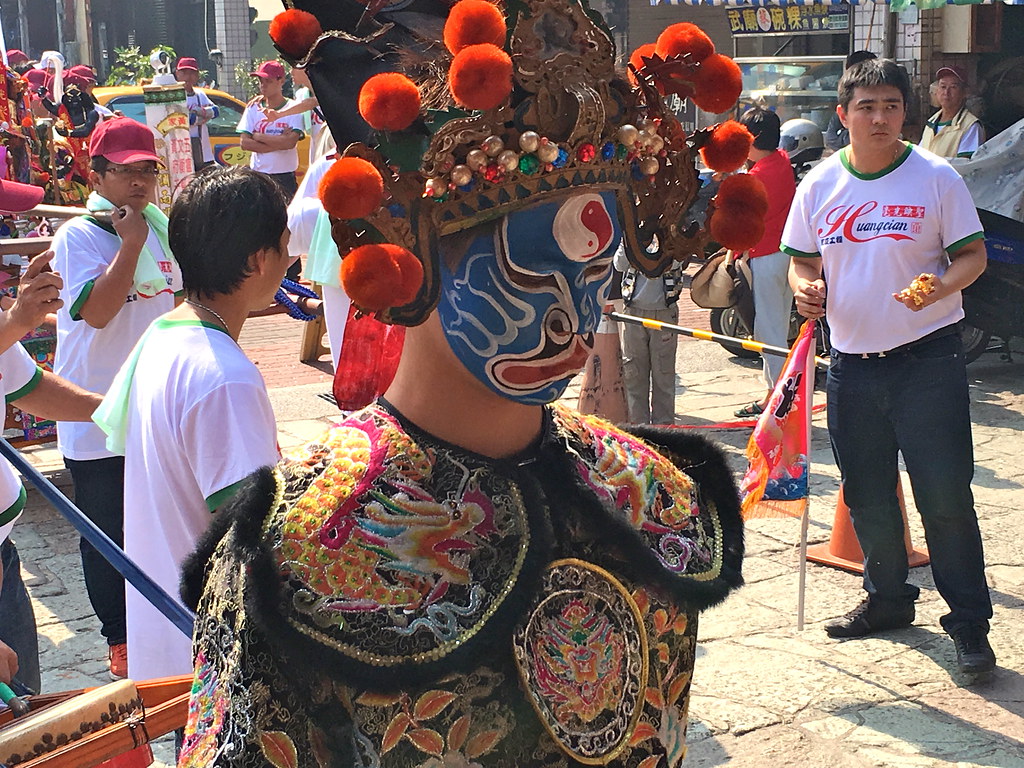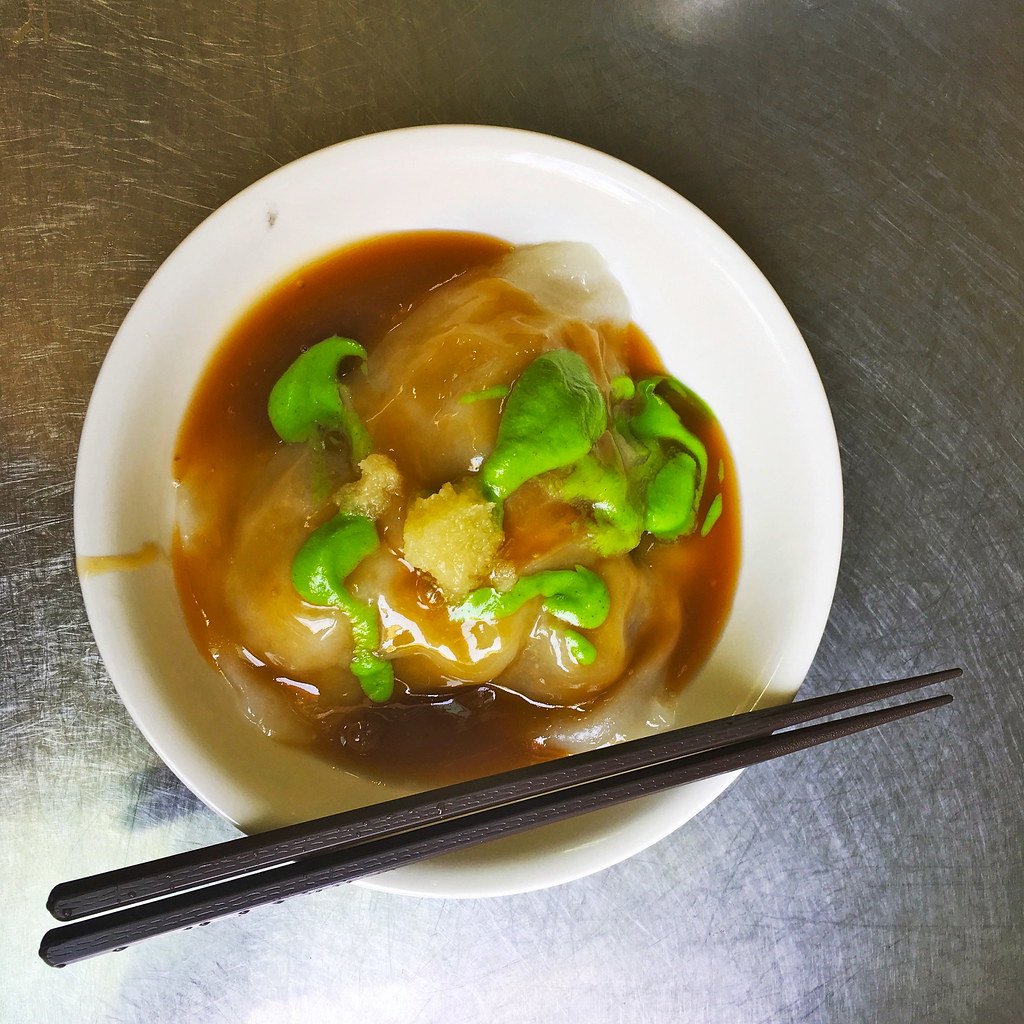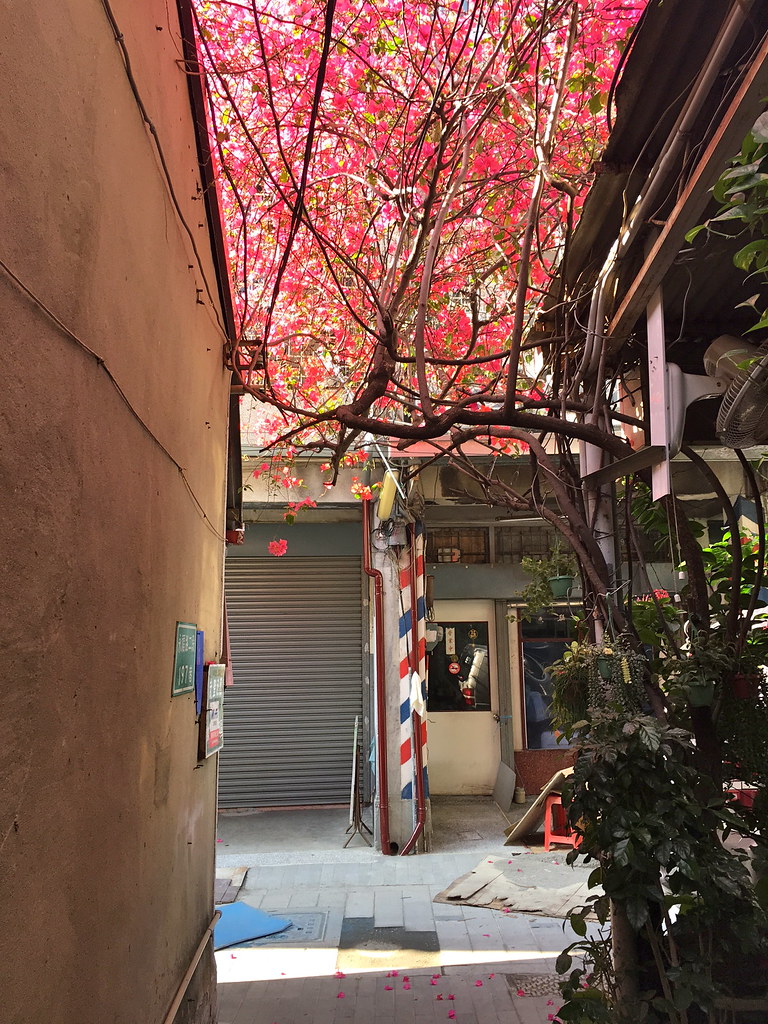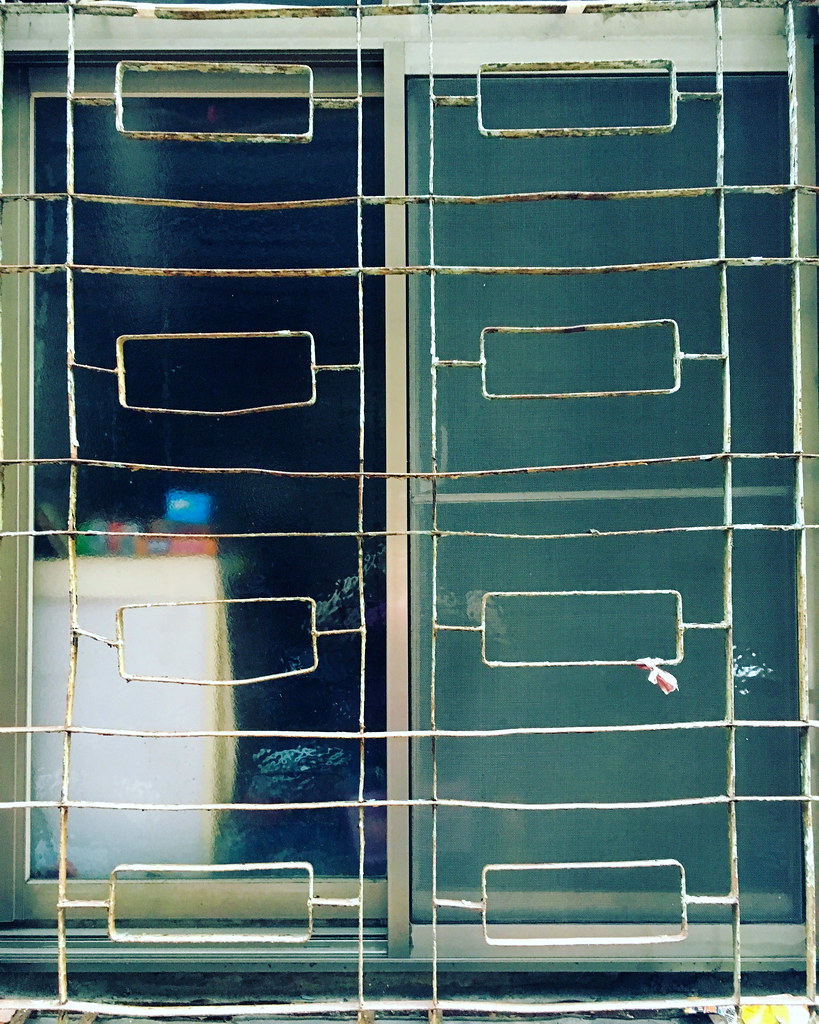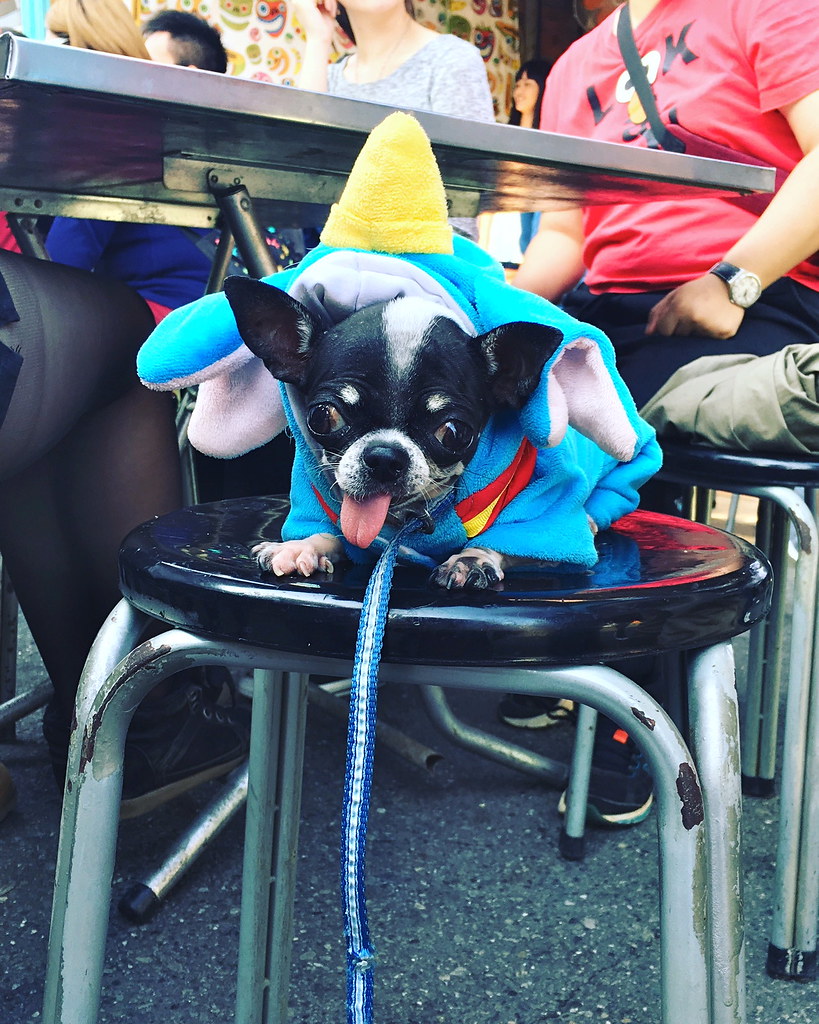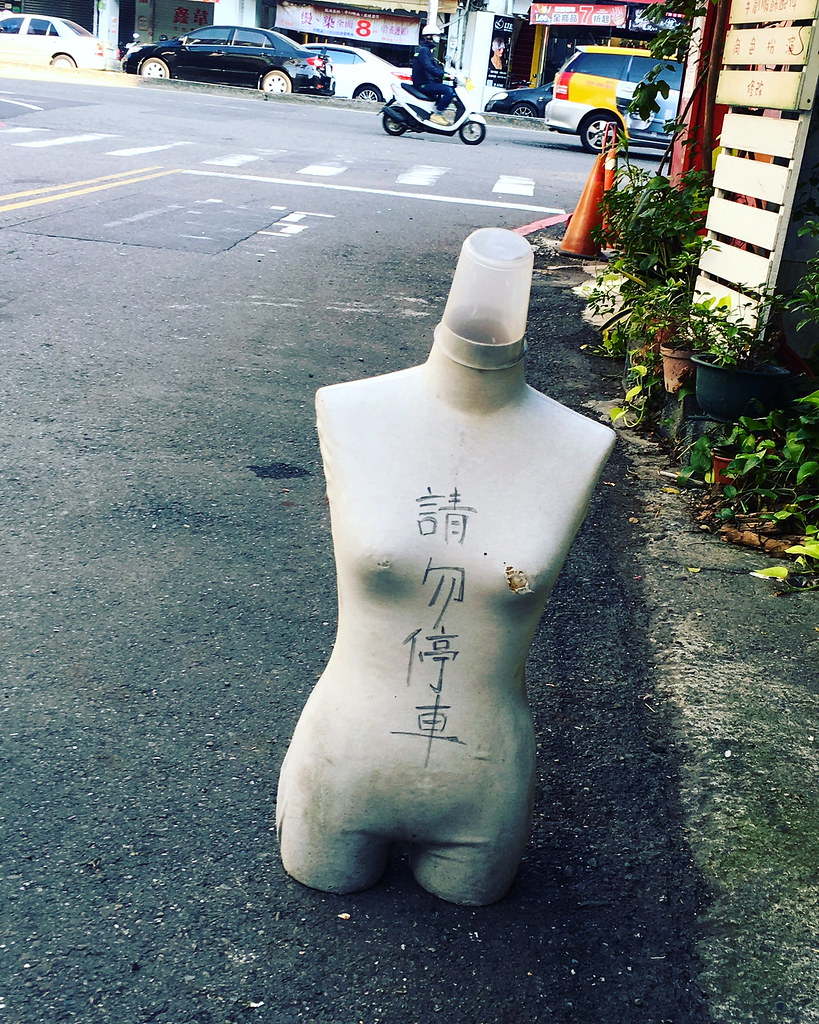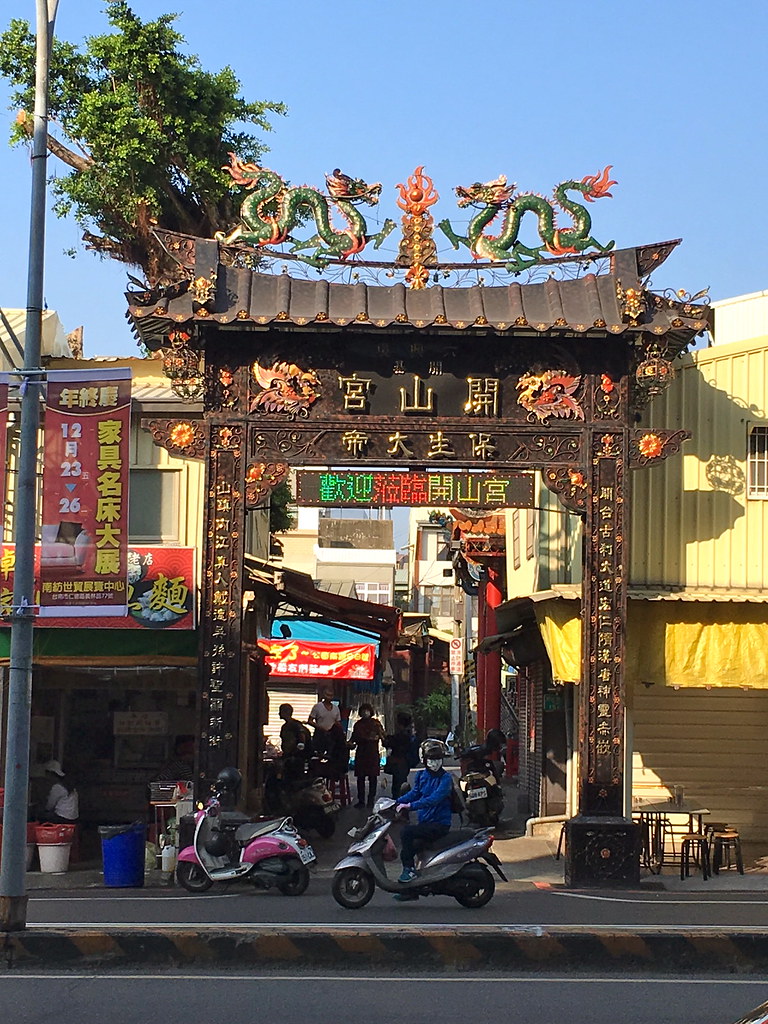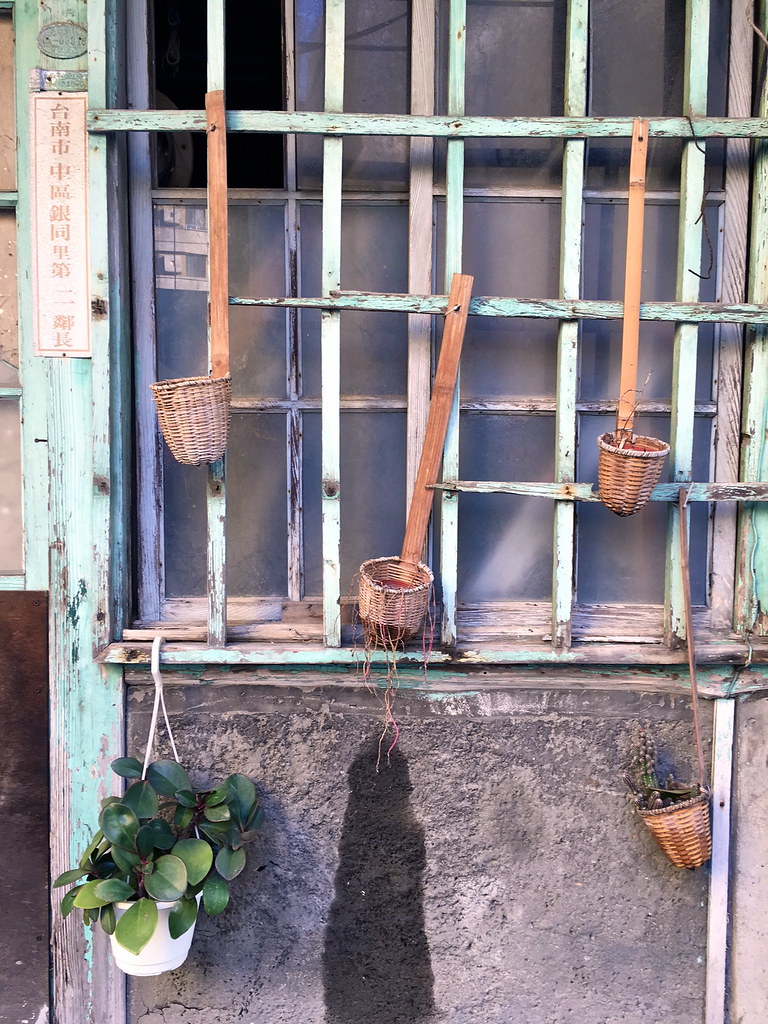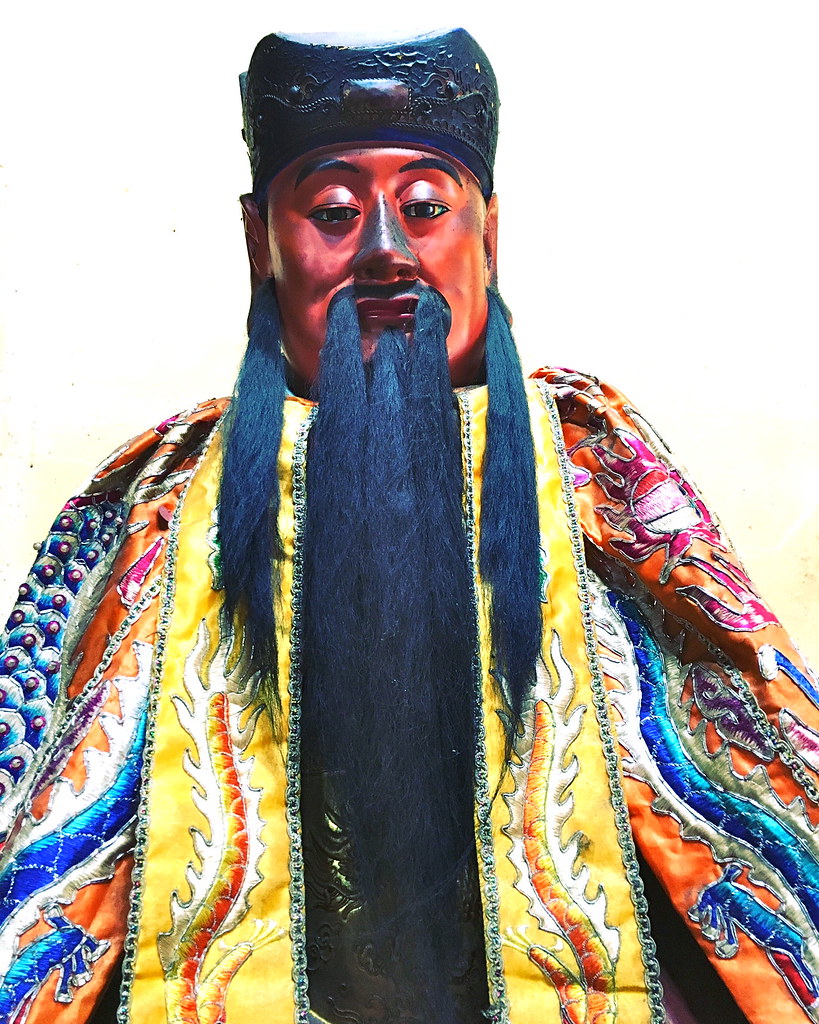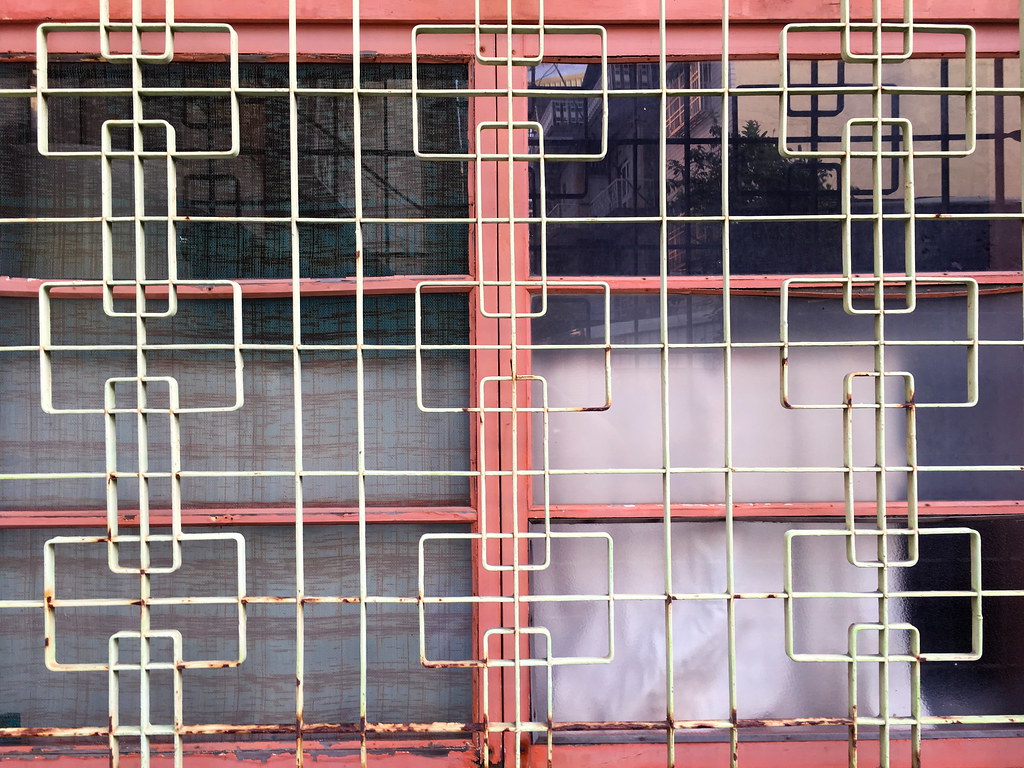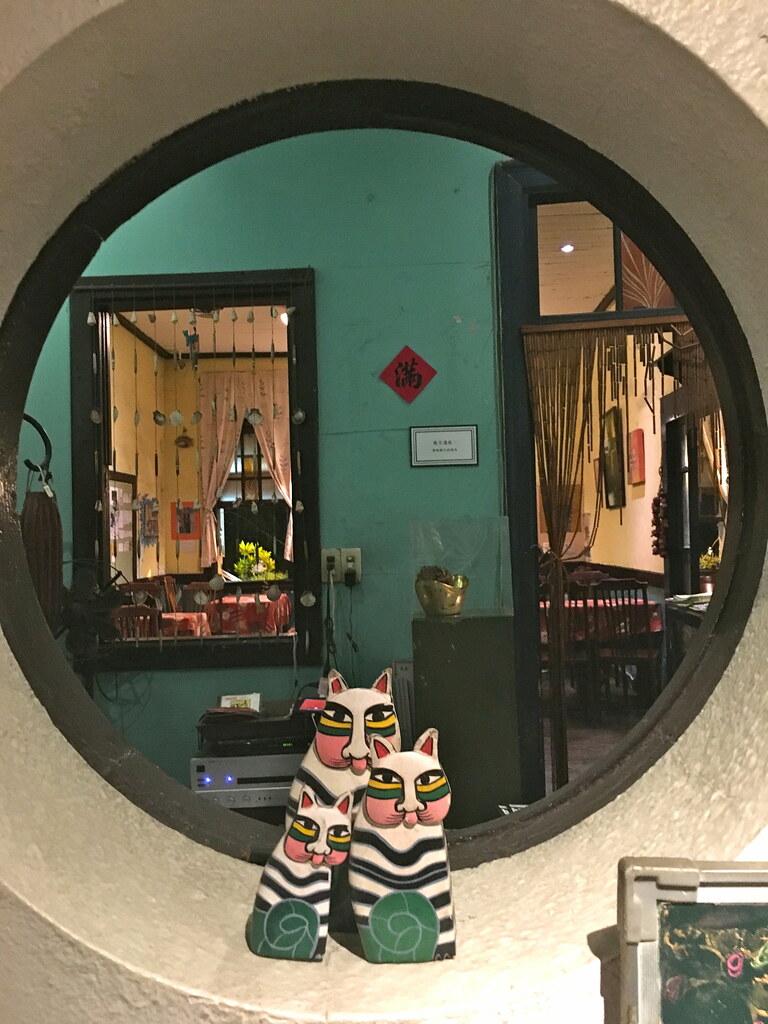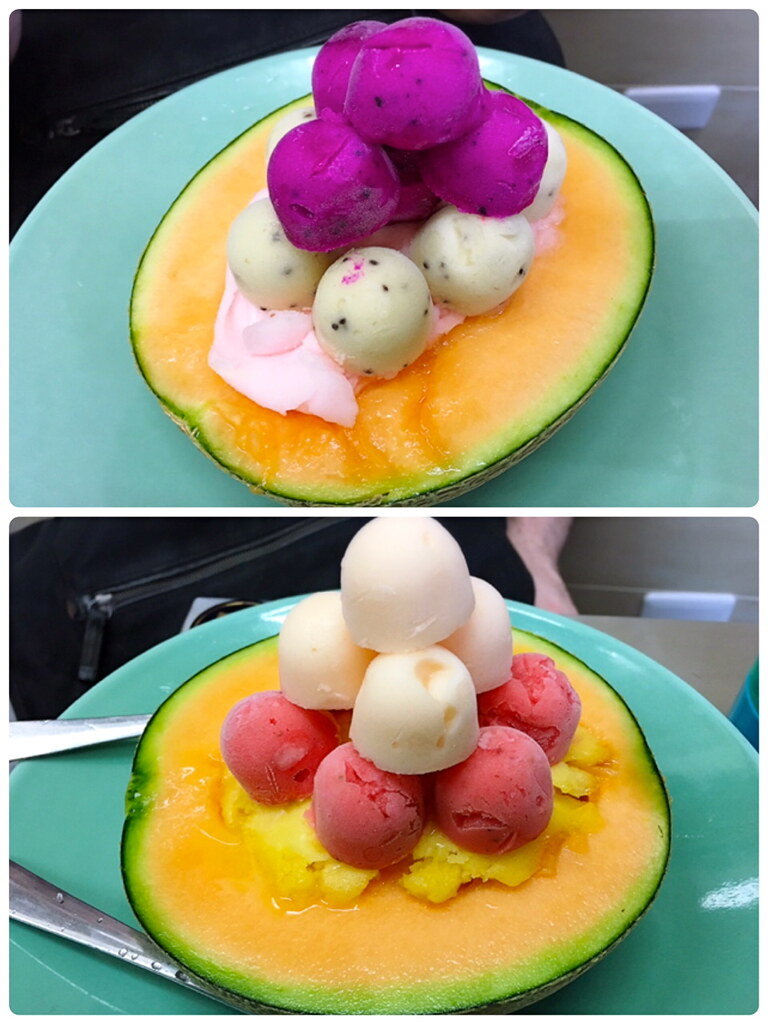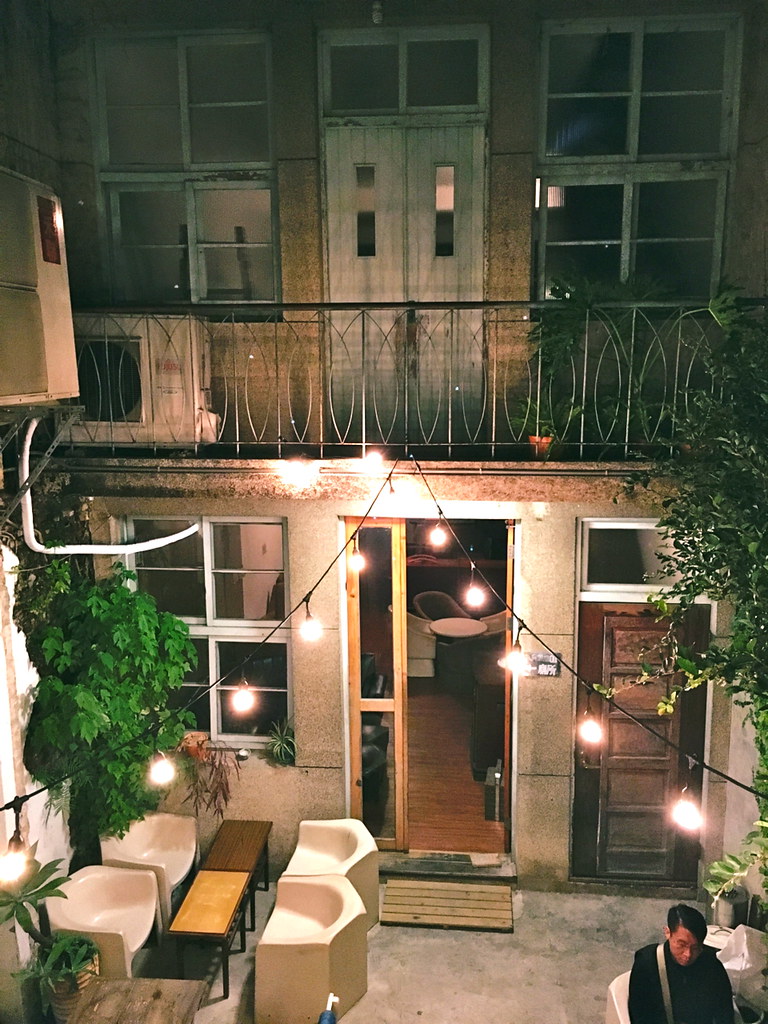 |
| Stairs up Jingling Mountain on a foggy day, our goal forever elusive |
The weather today has inspired me to write
about Hailongtun.
In 2002 and 2003 I lived in Zunyi, a small
town (which meant that it had less than a million people) in Guizhou, southern
central China.
While it got colder there than it does in Taipei – it even snowed twice - the
weather, especially in winter, was generally about the same: overcast and
dreary for days on end, cold, drizzly.
Although I lived on the refurbished “old street” (which was the newest
part of town in terms of building age), the smoke from hundreds of coal stoves
would fudge up the air as much as Taipei 101’s fireworks did last night.
Leaving the New Old Street, other than the mountain park and the river and one
memorable temple, the city became a mostly indistinct blur of white tiled,
blue-glass windowed concrete monstrosities stretching down wide roads for
miles. Puncturing this was the train
station, some thoroughly horrific public bathrooms, one so-so park, a “night
market” that was put to shame by even the most humble Taiwanese night market,
and a casino with a giant plastic Sphinx out front, topped off with a generous
helping of neon. It wasn’t a classy enough place to warrant LEDs.
 |
The giant medicine gourd in
Dragon Phoenix Park |
I
found some escape in the mountainside park, which did have a network of fairly
respectable hiking trails, and a giant cement medicine gourd, venturing pretty
far out of town in that direction on several occasions – even in winter. Soon,
I started to venture further into the countryside, renting a bike towards the
end of the New Old Street and riding out
past Gaoqiao (the way I consistently mispronounced that neighborhood made it
sound like “gaochao” or “orgasm”) and towards the rice fields to the west of
town. Out past there was a park and pagoda where I’d stop to rest, looking at
the 8 demigods’ symbols painted above (a medicine gourd, a flute…some other
things) before riding back and returning the bike.
With
more than half a year gone by in Zunyi, I was starting to feel like I’d never
figure the place out before I left. Not just Zunyi, but China, which I was
starting to feel was a more exciting place in Western fantasy than in reality:
the name “China” conjures up temples,
pagodas, a rich musical tradition, delicious food, richly brocaded fabric, or at least some
sort of modern equivalent to these
things (seeing as I knew that people generally did not live in pagoda’d and
pavilion’d houses anymore, and not everyone sat around all day painting
calligraphy or playing the zither). At least you expect scenery, historic sites
that look vaguely authentic, food you can trust, maybe a lantern or two, and
some adventure.
You’ll get the adventure – if “ did this bus just drive up a flight of
stairs FOR REAL?” is your idea of it (it is for me!) – and the food generally
was fantastic, at least when it wasn’t bitter gourd, some other weird roots or
things, or mostly bone, fat and sinew…but the food supply was (and is) so
untrustworthy that eating was a risk unto itself. I survived…with three fewer
teeth than I had going in.
I did learn how to cook some amazing dishes
and I was introduced to the life-changing, or at least digestion-changing,
concept of 花椒, or flower pepper, though.
But the historic sites are mostly gone or
covered in bathroom tile, everything else is basically a concrete box (also
covered in bathroom tile) and few really care about any of the traditional,
well, anything. There was scenery, but views of it were so gummed up by
pollution that even that was a let-down.
And yes, I was starting to wonder what on
earth could possibly keep me in China. Wouldn’t I be better off returning to
India or exploring some other part of the globe? One not covered in tile? What
was I doing in China and was Zunyi a place I could really settle into for
longer than my one year contract?
Ruminating on this and marinating in coal
smoke, the other two foreigners and I decided to try and find Hailongtun: the
ruins of a 13th century fortress with a bloody history about 30km
outside of town. It was the site of a battle between Ming dynasty forces and a
ruling clan in what is now Guizhou and part of Sichuan – it was build by the regional
ruling clan, which by the end of the 16th century was in direct
conflict with the Ming court. A bloody battle took place and thousands, if not tens
of thousands, were massacred here. The head of the ruling Yang family killed
himself along with two concubines. as he was outsmarted by the Ming soldiers.
We also knew that we were in for quite a
climb if we attempted to get here, but then doing anything in China felt like
quite a climb, if not physically, then mentally. I handled this feeling well in
India, but for some reason getting into the groove of it was not working out in
China. Where in India my memories are
sunny, colorful, occasionally mud-colored but always warm, when it comes to
China my thoughts turn a cold, dingy gray, not unlike the side of a cement wall
in winter.
Other than Fragrant Mountain Temple (香山寺) and the buildings in my
neighborhood considered historic sites for their significance during the Long
March (you could see the roof of the building where Mao Zedong was elected to
the Communist Party Central Committee from my window), there wasn’t much of
historical significance in Zunyi. I guess having even what it did was a feat:
the town was mostly spared destruction of its culture and relics because of
that significance in Communist history.
I thought seeing something of genuine historical significance would reaffirm my
faith that my year was worth it, that I’d be amazed by something. That maybe I
would be brought a little bit closer to the country I was living in by our
shared values regarding the importance of history (Cultural Revolution notwithstanding,
and leaving most of that history not standing).
It didn’t seem like it would be that hard -
it was mentioned in a book published in English, which was a rare thing in
itself, to find good tourism information on Guizhou in English. There even seemed
to be a bus that would take us close by, followed by a short hike.
The first time Jenny and I tried to go was
just before Chinese New Year – we stopped in a random town where the bus route
ended, maybe 17 kilometers outside Zunyi. We asked around for “Hailongtun” in
piss-poor Chinese, and were led up a street to a hiking trail. We were told it
was a 5-hour walk each way. It was already 3pm. We turned back, after snapping
some photos of New Year fireworks for sale.
As we were waiting for a bus, a guy with a van stopped and asked us
where we were headed. I tried to say that we had wanted to go to Hailongtun. I
don’t think he quite understood: he arranged for us to take a bus which we
thought was heading back to Zunyi. Instead, the driver said, he’d take us to
Hailongtun.
Great!
Oh, but from where he would drop us off it
was a two-hour hike each way. We tried protesting but it wasn’t working.
Finally we just let him drop us off, praying that wherever we ended up there,
would be another bus back to Zunyi. He let us off in some other random town
with one place to stay, one liquor store, a few street stands and a village
atmosphere, and bid us a nice hike. It was already getting a little dark out.
We did catch a bus back to Zunyi, with the
promise to try again in a few weeks. This time we brought Julian, whose Chinese
was considerably better than ours but who, like me, wasn’t as fast a hiker as
Jenny. We took the bus back to the second village and started out again.
Villagers said that in fact it was a four hour hike, and to start from Jingling
Mountain, “just over that way”.
 |
| Pagodas and farms on the way to Jingling Mountain |
OK, misinformation was nothing new for me
after life in China and India, so we rolled with the ever-changing time
estimates of how long it would actually take to get there, and starting points
that seemed to float around with no fixed center, as though the goal didn’t
even exist. We grabbed some water and food and headed down the dirt road to the
Jingling Mountain trailhead, passing rice fields and a few rustic pagodas on
small hills.
Then the stairs began, and with them, fog.
“I hope this clears by afternoon,” Julian said dryly, knowing as well as we did
that fog in the mountains of northern Guizhou, once settled in, basically never
clears. We trudged up stairs – miles and
miles of stairs, not unlike hiking in Taiwan – into ever thicker fog and a bit
of drizzle.
“Maybe it’ll look better in the fog, you
know, more mysterious and otherworldly,” said Jenny hopefully. Ever the
optimist.
More stairs. We passed a temple, and then
another. Nobody had told us that Jingling Mountain was dotted all the way to
the top with increasingly beautiful temples, many of them untouched by the
scourge of white tile. Most appeared to be Dao/Chinese folk religion in
affiliation rather than Buddhist, but it is sometimes hard to tell. We stopped
at a few to admire the architecture, idols and incense and chat with the
shrine-keepers, who walked up these miles of stairs every morning and down them every evening.
The
stairs led on, sometimes sharp-edged concrete, sometimes rough-hewn stone,
sometimes packed dirt, but they didn’t let up. At one point it felt like we
were ascending to heaven. We passed a small turn-off with a shack down the way
and asked again there if we were going the right way “no, no, don’t go this
way, keep going up the mountain,” the woman told us.
 |
| Incense burner (photo by Julian) in one of the temples on Jingling Mountain |
Well, alright then. I just hoped that we wouldn’t hit the top of Jinglingshan
only to discover that we had to descend the whole thing and ascend the next
mountain, and then go back and descend, ascend and descend again. We’d started
early but there wasn’t enough time in the day for that.
About three quarters of the way up, Jenny
got sick of our slow butts and decided to hike at her own pace. “I’ll meet you
there,” she said. It was true that she
was reasonably fit while Julian and I sputtered up the stairs like the duo in
Absolutely Fabulous.
We really didn’t have a choice, although I
was filled with dread, because rather like my gut feeling that I would never
really settle into China, I had an instinctive knowledge that we had
approximately .00001% of a chance of making it to Hailongtun that day. So if
not there, where would we meet her? Julian could speak Chinese, I could get by
in Chinese, but Jenny couldn’t, although she could quite literally run circles
around us athletically. She might make it to Hailongtun but would she make it
back? We two probably wouldn’t make it to Hailongtun but we could get home just
by asking nicely.
Julian and I trudged upward, hitting one
final temple and being told that Jinglingshan’s summit was only about 10
minutes up some more stairs.
The temple had a dragon fountain into which
you could throw tokens – one renminbi for five, or something like that. If the
token landed on the dragon sculpture and not in the bowl, you could make a
wish.
I bought the tokens and added something to
the game – completely made-up, but I felt like a lot of rules of life and even
courtesy in China were basically made-up, slapped together ad-hoc or sometimes
not even as necessary but for the explicit purpose of being inconvenient, so it
wouldn’t really matter if I made up my own fortune telling superstition it
wouldn’t matter to anyone, man or god. I
asked a question each time a coin was thrown, and if it hit the dragon,
a heads-up would mean “yes” and a tails-up would mean “no” (the heads were Mao
Zedong and the tails were some kind of flower, the tokens were cheap
aluminum).
Two of my coins hit the dragon. I’m not
using that as a narrative device – it actually happened. Ask Julian. I made two
wishes and asked two questions.
It was now mid-afternoon, and the fog
hadn’t let up. But we knew that it wouldn’t. We also knew that we had very
little time to actually get there, because we absolutely needed to start
heading back.
We decided to go for it. I don’t believe
that a stone dragon in a fountain on a temple as a magical fortune-telling
device, but I knew, I just knew, what was going to happen.
We walked the ten minutes – for once
someone was accurate in their assessment of how long it would take – and hit
the summit.
Without fog, the view would have been
spectacular. You could feel it in the air. We were surrounded immediately by
open space and further on by other mountains and valleys. It would have been
stunning. Life-altering, even. Maybe enough to make me reconsider my fairly
lackluster opinion of China.
There was fog, though. All-encompassing,
all-engulfing white out. You couldn’t see past the stone fence surrounding the
platform on the summit, not even down the mountain slope beyond. Nothing. I
shouted into it. There was an echo, but that also told me nothing. I called
Jenny’s name. Nothing. I screamed it. Nothing.
Of course, the trail ended there. There was
no descent. There was only back the way we’d come. Dead end, no Hailongtun, not
even a trail we could have taken if we’d had more time. I can’t help but see
that as metaphorical.
We turned back, stopped partway down at the
turn-off and asked again.
“Of course that is the way to Hailongtun”,
the woman said.
“Why didn’t you tell us before? Why did you tell us not to go?”
“Because it’s another three hours’ walk
from here. You’d never have made it. If
you go the other way at least you can go to the peak of this mountain.”
“Did another foreigner go that way?”
“Yes, but she came back awhile ago.”
“Did she make it to Hailongtun?”
“I don’t know, she couldn’t speak Chinese. Probably not. Are you hungry?”
“YES!”
She fed us some rice, tofu, cauliflower and
carrot cooked in basic Sichuan seasoning. I wolfed, Julian, who doesn’t care
for Sichuanese flavors, barely ate. We offered to pay her, but she’d have none
of it, even after we offered three times.
This was one thing I liked about China – this and the bus that drove up a
flight of stairs. Sometimes, when you least expected it, people were kind. Even
people who led you down the wrong trail earlier.
We walked back to town and caught a bus back to Zunyi, fog-dampened and
exhausted. We warmed up a bit and then
went to Jenny’s apartment, where she was also huddled in front of a space
heater and not concerned about us. “I figured you’d make it back.”
“Did you make it to Hailongtun?”
“Nope. You?”
“No.”
“Oh well…next time?”
“Next time.”
Except I knew, without really knowing, that there wasn’t going to be a next
time, not for Hailongtun and not for China. I knew that I wasn’t going to renew
my contract, and that I wasn’t going to stay in China. I did not yet know that
I’d end up in Taiwan, or that I’d find both the settled happiness and adventure
here that I couldn’t find in China. I did not yet know that I was going to
marry my best friend, or that despite having a few ugly facades and terrible
winter weather that Taiwan would suit me
remarkably well. Not because it is easier – although it is – but because
something about life here, the more laid-back attitudes, the fraternity and
hospitality, the fact that it’s full of (often) pollution-free scenery and
history unencumbered by concrete and tile, sits better with me.
I didn’t know a lot, but I did know,
somewhere deep in some internal organ in my gut, that my failure to find
Hailongtun represented my failure to feel at home in China, or to be able to
say anything more complimentary than “it was an interesting and adventurous
experience. You could say it changed my life. It certainly ruined my teeth and
my respiratory system.” I will say that while, like not reaching Hailongtun, I never did feel at home in China, that rather like finding all the lovely temples dotting Jingling Mountain, I did have a lot of adventures along the way.
I guess that’s all you can ask of a year abroad, so I don’t feel gypped. My year in Taiwan opened me up to the
possibility of Taiwan, and for that I am grateful. I have found many
Hailongtuns here.
So as for my questions to the dragon
fountain on the highest temple of Jingling Mountain.
For the first question, I asked “Will we
ever make it to Hailongtun?”
For the second, “Will I ever see China as
more than a brief adventure, a pit stop, a place to explore but not feel at
home in?”
No.
And no.
I won’t tell you what I wished for on top
of that, but both my questions and my wishes came true.


